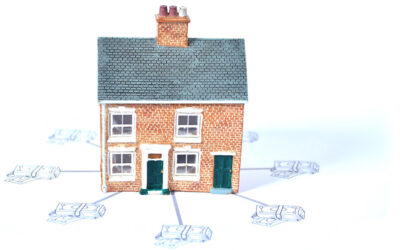Financing real estate investments can be tricky when you’re self-employed. Lenders look for consistent income, which is harder to show without a W-2. But getting a mortgage is very doable with the proper documentation verifying your earnings, plus preparation and realistic expectations. While rules for the self-employed are stricter, many options exist.
We’ll discuss optimizing your application, working with lenders, and leveraging assets to qualify for the best rental property loan rates and terms. You can become a successful real estate investor with passive income and financial freedom, even when banking on your business.
Key Takeaways:
-
- Self-employment doesn’t disqualify you from mortgages. Mortgage lenders may want two years of steady income history and thorough documentation, but many good loan options exist, including conventional, FHA, VA, and USDA.
- Optimize your debt, credit, and down payment savings. Banks view low debt, high credit scores, and sizable down payments as lower risk. These boost your chances and improve loan terms.
- Find an experienced lender. Those familiar with self-employed applicants know the needed documents and how to assess your profile reasonably. Don’t get discouraged—persistence pays off.

What Is A Mortgage?
When you decide to buy or refinance a home, you’ll likely need to take out a mortgage. Simply put, a mortgage is a loan used to purchase real estate—usually a house or condo—that serves as collateral for the loan.
With a mortgage, you borrow money from a lender, like a bank, to cover the purchase price of your home. You then pay this loan back with interest, often over 15 to 30 years. These monthly payments are predictable amounts that stay the same across the full term.
Your home secures the loan, which means the lender can foreclose and take ownership if you stop making monthly mortgage payments.
Types Of Real Estates That Can Be Acquired Through Mortgage
Here are some prime examples of properties you can get through a mortgage:
| Property Type | Description |
| Single-Family Home | A standalone structure designed to house one family. |
| Multi-Family Home | A building with multiple separate housing units. |
| Condominium | An individual unit in a larger complex with shared common areas. |
| Townhouse | A multi-floor home that shares one or two walls with adjacent properties but has its own entrance. |
| Commercial Property | For business purposes, like offices, stores, or warehouses, properties are used. |
| Mixed-Use Property | Properties that combine residential and commercial spaces. |
| Vacation Home | Properties that are used for leisure or vacation purposes. |
| Investment Property | Any property purchased to earn a return on the investment. |
Can You Get a Mortgage While Self-Employed?
Yes! Being your own boss does not exclude you from financing options. Many lenders offer mortgages specifically to borrowers with freelance, contract, or small business income streams.
The underwriting process may involve extra steps compared to regular employees. You should expect to provide additional documentation like monthly income statements to give lenders clarity and confidence about your income and loan repayment ability. Examples include multiple years of tax returns, financial statements, and bank records. On top of that, some even require higher down payments (more of that later).
How To Get Mortgage Loans While Self-Employed?
Getting approved for a home loan may feel intimidating working for yourself. But take a breath, you can get to the path to mortgage approval if you follow the step:
Identify If You’re Self-Employed or Not
You’ll generally be considered self-employed if you own a business, work as a freelancer or independent contractor, or get paid via 1099 forms rather than W-2s. In these cases, count on providing more documentation about your income streams.
Why does this matter? Well, without a formal salary on record, lenders perceive you as a riskier applicant. Your income may fluctuate more than a traditional employee’s would. So, lenders would verify your income with documents (more on that later) since traditional hourly paychecks don’t back up your earnings.
Present Your Business
Income and projected earnings matter to lenders. To present this, you can submit items that position your business and industry as stable. You may share revenue growth trends, contracts that guarantee future pay, or a professional website that could boost your operations.
Tell your story through data that backs up financial reliability. Remove doubt that clients will keep booking you or sales will stay steady. Yes, you may see normal ups and downs. But quell lender concerns by showing the demand for your business.
Prepare The Mortgage Loan Requirements
When applying for a mortgage, expect to provide proof that verifies your freelance or business earnings. This proof of income clearly shows your income streams and ability to repay the loan. It would be best to lean on your accountant to supply items like:
-
- Business licenses to show you operate legally
- Insurance paperwork in industries where it’s mandatory
- Official partnership or incorporation docs if you’ve formally structured your business
- Permits from state/federal agencies that regulate your work
This paperwork validates “Yep, I run a solid operation!” to lenders. And, of course, lenders also need to verify your finances with documents like:
-
- Federal income tax returns from at least the last two years, both personal and business
- Recent bank statements from your business showing cash flow
- Profit/loss statements to spotlight earnings versus expenses
- An accounts receivable list, meaning who owes you money
Look at Multiple Lenders
Finding the right lender match matters when you don’t have traditional pay stubs. So, look out for loan officers who are well-versed in self-employed applicants–they know the documentation needed and can effectively relay your profile. Mortgage brokers also understand different lender requirements, helping steer you accordingly.
Moreover, some institutions specifically focus on freelancer or entrepreneur loans. Shop options like community banks, credit unions, and online lenders. Compare their self-employed programs or interest rates. You may also look at our lenders page.
Consider Non-QM Lender Options
Consider checking non-QM loans if you don’t have W-2s but can show solid assets in bank statements. These non-qualified mortgages offer flexible income documentation for entrepreneurs and contractors paid via 1099s.
Rather than pay stubs, lenders evaluate average account balances over the past year or more. If funds look ample and consistent, you may qualify where mainstream programs wouldn’t approve you.
Just know the trade-offs. Non-QM lending lacks legal protections, requires bigger down payments and reserves, and charges higher interest rates.
Mortgage Loan Options For Self-Employed
If you meet the income requirements, options like conventional loans, FHA financing, VA loans, and more mortgages are all on the table. Let’s take a closer look.
Self-Employed Conventional Loans
Conventional loans follow standard home buying guidelines around credit, down payments, and loan amounts. Traditionally, for W-2 employees, self-employed borrowers qualify after two years of consistent business revenue. Or potentially sooner if you have past W-2 income in similar work.
The advantages? Conventional loans offer the lowest rates and best terms if you put 10-20% down. You skip mortgage insurance by putting 20% down, saving big over time. Even with just 3% down, conventionals remain affordable. Conventional lending is likely your best route for entrepreneurs with good credit savings.
To compare quotes from several conventional mortgage lenders, try tools like Credible.
Self-Employed FHA Loans
FHA home loans come with flexible credit and down payment options—3.5% down instead of 20%. That helps many first-time buyers. But did you know that self-employed borrowers are also qualified? FHA mainly looks for two years of a steady source of income or one year’s experience plus two years in related W-2 work. They then verify earnings via recent tax returns.
If you don’t have established tax docs yet, alternatives exist. For example, new entrepreneurs with great personal credit history and cash savings may provide bank statements instead. However, FHA has higher monthly premiums than conventional mortgages, though lower down payments help sellers compete.
There’s a catch: FHA loans are for owner-occupiers only, though you can get around this by house hacking. Traditional multifamily house hacking involves buying a multifamily property, moving into one unit, and renting out the others, or you can outsource the live-in requirement with ‘Kiddie Condo’ loans. There are many ways to do it, you may also check out some creative ways to come up with a down payment!
Portfolio Lenders
Portfolio lenders offer a non-traditional path for the self-employed. Unlike mainstream banks, they hold mortgages in-house instead of selling loans to bigger corporations. That gives them more flexibility around borrower qualifications.
The perk? You may not need income statements at all. Portfolio lenders care chiefly about the property itself as collateral. That’s great if your earnings fluctuate. High-interest rates and costs exist, yes, but easier approvals do, too.
Lenders like Forman and Visio are more interested in the property’s collateral than your income. These specialized lenders also love working with real estate investors–even if you have multiple current mortgages.
Self-Employed VA Loans
VA home loans can be a great fit if you’re a veteran or service member who now works for yourself. These government-backed mortgages come with below-market rates, no ongoing mortgage insurance, and more flexible underwriting.
As long as you’ve been self-employed for at least two years (or one year plus a related two-year work history), you can qualify with a credit score as low as 580. So, if you’re eligible, check it out first since it’s typically the most affordable option for buying a home.
Self-Employed USDA Loans
USDA home loans can be a great option if you’re self-employed and meet the income limits in your area. With these government-backed mortgages, you can qualify with just a 640 credit score, zero down payment, and no monthly mortgage insurance. The essential requirements are also at least two years of self-employment.
You also must live in a “rural” area, though the USDA’s definition is broad–most of the country qualifies. If you like the idea of a no-down-payment loan with below-market rates, it’s worth checking with a lender to see if you and your property meet the USDA criteria.
Remember, house values keep increasing as interest rates stay low, and don’t expect a housing market correction to reduce property prices even though they might fall 10% over the next year or could further rise 15% before a 10% drop.
Tips to Qualify For a Self-Employed Mortgage Loan
If you’re confident that you can make the payments, you can boost your chances by following the tips below.
Keep Your Debt Burden Low
One way to increase your chances of getting a mortgage when self-employed is to keep your debt-to-income ratio on the low side. Mortgage calculators can tell you the max home price you may qualify for—but aim lower.
If the calculator says you can afford a $350K home, try keeping your budget under $200K instead. This gives you breathing room in your DTI ratio and makes approval more likely.
Show a Stable Self-Employment History
Lenders want to see your proven record of making self-employment work, so aim for at least two years of tax returns to show stable or increasing self-employment income. This will show that you know how to run a successful business. During those years, think twice before claiming deductions that reduce your taxable earnings – lenders focus on your adjusted gross income.
Boost Your Credit as High as Possible
A good credit score is one of the most important qualifiers for any loan situation, such as loans for rental properties. Aim to max out your credit scores as much as possible, as it could give you better terms.
Put Down a Sizable Down Payment
Banks typically view borrowers who make large down payments as a lower risk since having more equity invested upfront makes it less tempting to walk away during financial hardship.
Have Plenty of Cash in the Bank
Lenders like to see a good emergency fund beyond your down payment. This shows you can cover bills like property taxes, insurance, and repairs—even if your business hits a rough patch. Bulk up savings so you have a cushion.
Pay Off Credit Cards and Other Debts
Consider paying down credit cards, car loans, and other debts before applying for a mortgage. The fewer other monthly payments you have, the more comfortable lenders will be approving your loan. Reducing debts also frees up cash flow, qualifying you to borrow more for your home.
Gather The Required Paperwork In Advance
Being ready with all your financial docs helps with self-employed mortgage approval. You may need to provide past tax returns, profit/loss statements, balance sheets, bank records, and anything else the lender requests. This could include monthly debts, assets, additional income sources, proof of your business, and current rent/mortgage payments.
What if You’re Not Qualified?
If you don’t qualify for a traditional mortgage, alternatives like non-conforming loans exist but often cost more. These may have higher rates, closing costs, and less ideal repayment terms. Personal loans are an option, too, though amounts are capped lower than your home price.
A HELOC or home equity loan could work for a refinance if you have sufficient home equity. But aim for standard financing first – if denied, discuss options like these with your lender.
Risks When You Finance a Rental Property
When using loans to grow your rental portfolio, vacancies, non-payment, and negative cash flow can quickly become vulnerabilities. As a self-employed investor, you need ample savings to cover costs if rents dry up.
Carefully run a tenant background check and make sure they complete rental applications and expenses to ensure your loan won’t become a burden. Target high-demand areas where units rarely sit vacant for long. Be sure to calculate your cash flow and ROI to keep track of your finances; you may check out our rental property ROI calculator while at it.
And remember: do your due diligence before taking the plunge so your financing drives profits rather than losses.
The Bottom Line of Self-Employed Mortgages
As you can see, getting approved for a home loan when self-employed is possible with the right preparation. While it may involve more paperwork and stricter requirements, plenty of great financing options exist.
Don’t let your entrepreneur status deter you. Homeownership can provide excellent stability as you grow your business, and real estate opens up lucrative investment opportunities.♦
Are you a self-employed real estate investor? What’s your tried-and-tested ways to finance your portfolio?


























